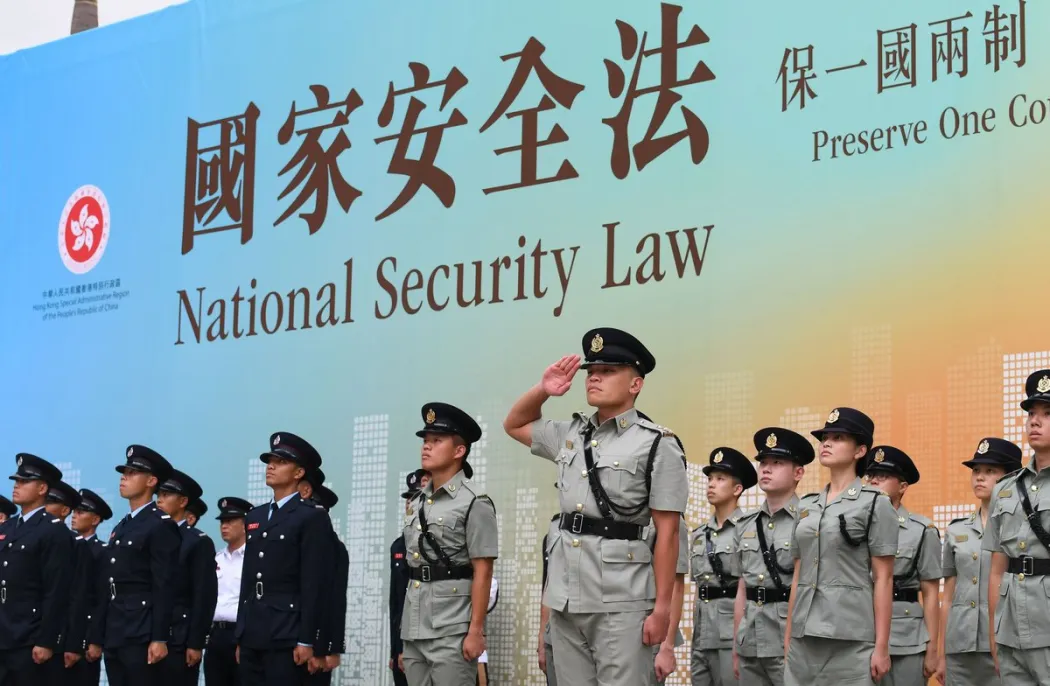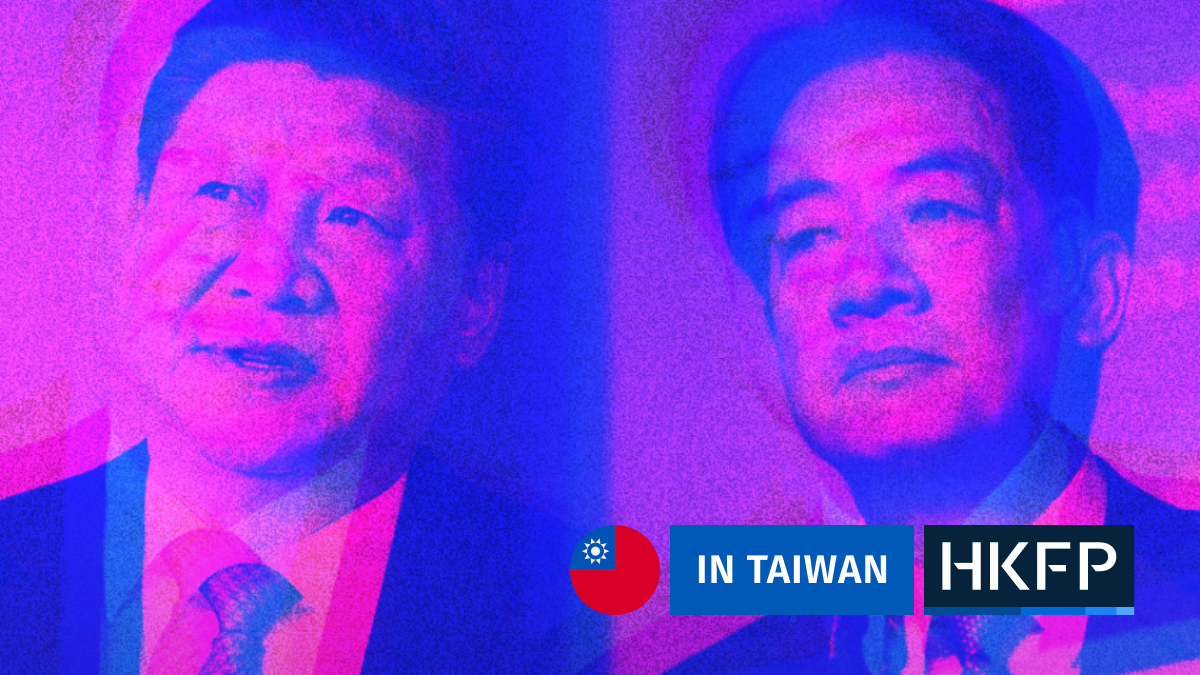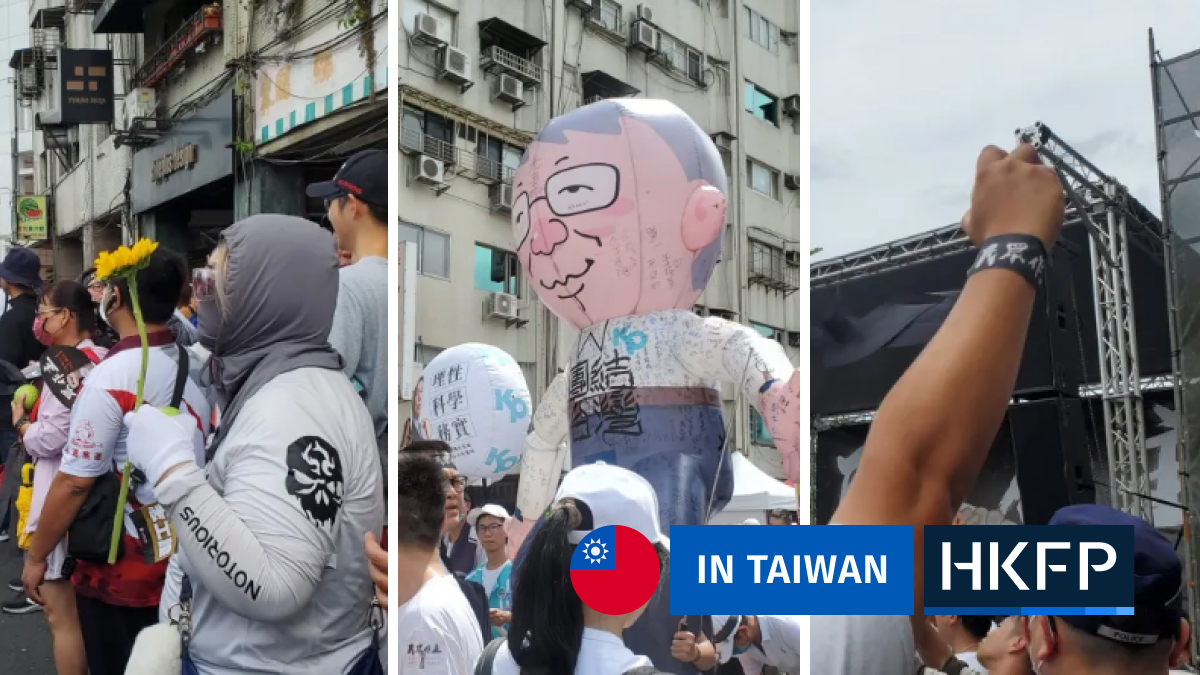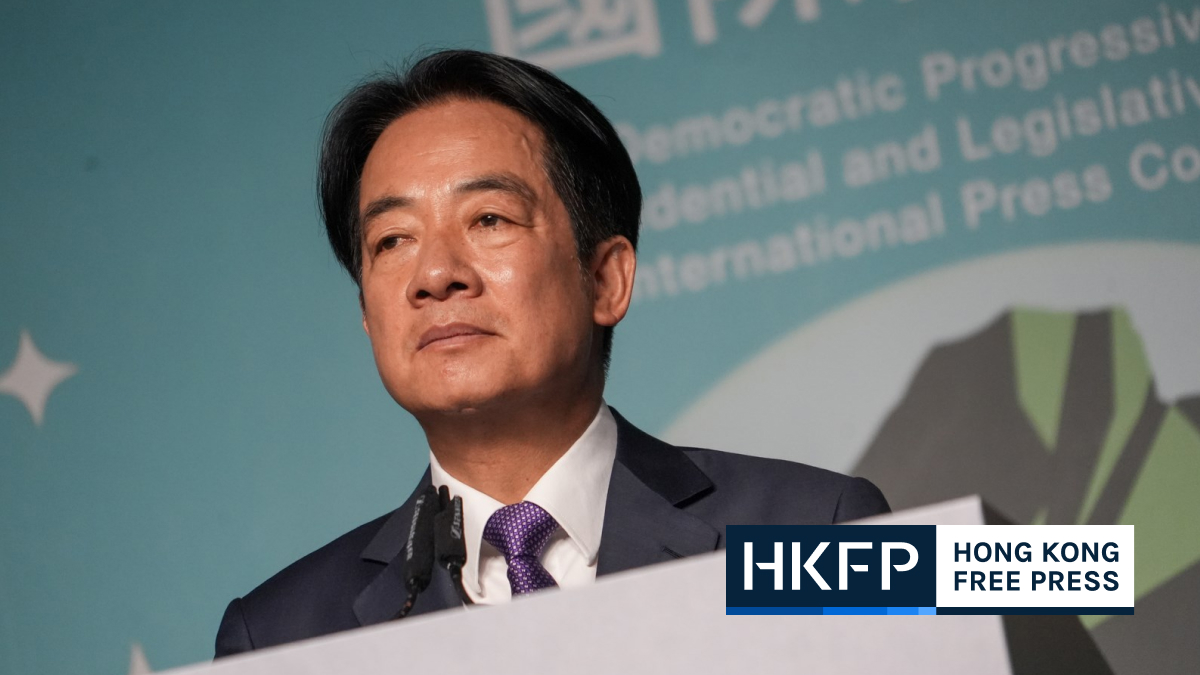By Teele Rebane
Anna is a 15-year-old who often found herself on the frontlines of the 2019 pro-democracy protests and unrest. Peter Tsang Yu-hung, now a 70-year-old retiree, was arrested for illegal assembly in 1967 when he was 16 and sentenced to a year behind bars.

Over the past half-century Hong Kong has gone from being a British colony to a Chinese Special Administrative Region that many fear is destined to become just another mainland city.
The younger generation has become increasingly outspoken against Beijing. A survey by the University of Hong Kong in 2016 found that those aged 18-39 tend to vote for pro-democracy parties, whilst older groups are more likely to support the pro-Beijing side.
Anna – full name withheld – crosses her arms in an attempt to cover a temporary “STANDWITHHK” tattoo on her forearm. Before the protests broke out she was a regular teenager who spent most of her time hanging out with friends – she shyly admits that she misses those times. “I really wish that could happen, but it’s not possible right now. I don’t really care about that anymore. I am more concerned about the future of Hong Kong.”

She says the immediate goal of the protests was for the government to consider the five demands of the protesters, including the withdrawal of the extradition bill and an inquiry into police violence. The ultimate goal, according to her, was independence – albeit far on the horizon. Peter shakes his head violently: “Beijing will never give up Hong Kong, this is definite. There is no bargaining.”
Anna remains unfazed and hopeful. She believes that, when younger generations grow up and replace those currently in government, Hong Kong can be reformed. “We will be able to change Hong Kong one day; it’s just not now.”
In May 1967, protests broke out at an artificial flower factory in San Po Kong where 325 labourers were fired. The next day, when sacked workers returned to the factory to negotiate compensation with the management, the police showed up. A private labour dispute escalated into city-wide strikes and protests, culminating in bomb attacks and several murders.

“They tried to show their loyalty to Beijing, to do some revolutionary patriotic thing in Hong Kong,” says Gary Cheung, the author of Hong Kong’s Watershed: The 1967 Riots. He believes the reasons for the protests were more political than economic. It was a spillover of the Cultural Revolution from mainland China, which was enduring political turmoil under Mao Zedong. “Beijing was happy to see some anti-British protests, but I don’t think Beijing leadership really seriously considered to take back Hong Kong at that time,” he adds.
The riots lasted for five months, during which at least 51 people died. The final straw came when two young siblings were killed by a street bomb wrapped like a present near their home in North Point in August 1967. Today, the violent episode is rarely mentioned as part of Hong Kong history. The riots effectively ruined the reputation of leftists in Hong Kong. “They are resented by mainstream society,” Cheung says.
However, a number of those who took part in 1967 still believe that what they did was correct, even patriotic. “That’s why they still have bitterness,” Cheung said. The leftists believe they received unfair treatment and their actions were misunderstood by the public.
On the other hand, the 2019 protests were supported by 59 per cent of Hongkongers, according to a survey by the Hong Kong Public Opinion Research Institute (PORI) in December 2019.
“My father loved China very much indeed, however he advised me to stay calm,” Peter says, recalling the events of 1967. “But a boy of 16, you know…when the dispute started, we put away our books.”
Peter and his friends organised rallies in the schoolyard at which they waved Chinese flags and denounced the British government. On December 3, 1967, he was sentenced to a year in jail for illegal assembly. “My father was very angry, my mother was very sad. I was the only son and I destroyed my life.”

Peter pulls out photos from the day he was released from jail. His school threw him a welcome back party. He poses for a group photo with 20 or so classmates, who had also been arrested.
He looks solemnly serious, tall for a 17-year-old.
What he could not have imagined back then was that some 50 years later, Hong Kong would undergo another massive social movement. This time around, some of those involved in the events of 1967 no longer agree with the act of protest. Some 91 per cent of those aged 14- 29 opposed the controversial extradition bill that sparked the months-long protests in 2019. Amongst those aged 65 or older, only 47 per cent opposed the bill, according to research conducted by PORI and the Project Citizen Foundation in 2019.
Peter says, that back in the day, they protested because they loved their country and wanted the foreign government gone; now the young protest because they hate their country. He raises his hands in despair, his eyes puzzled and concerned. “You love your mother, you love your father, you love your country. There is a reason for every love and every hate. What is the reason for this hate?”

“They are trying to force us to change ourselves,” Anna responds, “It’s not about right or wrong; it’s about having the right to choose your own thoughts.”
The first protest Anna attended was on June 12, 2019, the day of the second reading of the bill which would have allowed extradition to mainland China. A citywide strike had been called and people gathered in Tamar Park for “picnics” – a euphemism for civic gatherings. Anna attended simply because she felt she had to. Clashes soon broke out between protesters and police and 150 rounds of tear gas were fired.
Peter shakes his head in disappointment: “You are breaking your parents’ hearts.”
Anna says she doesn’t agree with the use of violence by protesters but believes there’s no other way to make the government respond to their demands. She brings up the 1967 riots, when violent demonstrations eventually forced the government to speed up the reform of labour laws.

“But right now in 2019 and 2020 nothing changed,” Anna says. “I mean, everything changed! It got worse!”
On June 30, 2020, China imposed on Hong Kong a national security law intended to curb any challenges to the authority of the central government in Beijing. The new security bill effectively put paid to any resumption of the street protests as it outlaws calls for independence or any acts deemed as subversive or separatist.
The grim prospects don’t deter Anna from wanting to be a journalist when she leaves school. Or maybe a politician – she isn’t sure yet. Her biggest concern right now is the future of free speech in Hong Kong. The recent series of events has worried her, as has the possible censorship of information.
Peter says he’s not worried as he believes ultimately that the truth cannot be hidden. “Media is very important, but facts are facts. Even if you spread fake news, spread lies, the facts will come out.”

Anna disagrees. She knows that misinformation spreads like wildfire. Her own father is an avid supporter of the Chinese Communist Party (CCP) and often shares information disseminated by the party with the family. In fact, he told her that the 1967 riots never happened. This disagreement is a constant source of conflict between the two, which often leads to fights in the household that last for weeks. “Cold War” periods, as Anna calls them.
One such episode has just ended. Anna confronted her father to ask why he chooses to support the CCP despite the 2019 protests and the Covid-19 pandemic first detected in China. He remains strong in his stance, citing China’s rapid growth over the past few decades. He feels mainland China has surpassed Hong Kong on the curve of development.
Peter nods eagerly in support. “You say China this, China that. How come China nowadays has become so strong?” he asks with a smile.

Anna shrugs it off. She doesn’t think China’s national development is matched by the improvement in the daily life of its people. “You can’t just say that China is bad. It’s not,” she says, clarifying that she dislikes the Chinese Communist Party but has nothing against the country or its people.
The one thing the pair do agree on is Hong Kong leader Carrie Lam, whom they both dislike with a passion. Lam is the city’s most hated chief executive. Hitting historically low approval ratings week by week, she has failed to find solid support from either side of the political spectrum. Peter declares that if he were Lam’s husband, he would never have let her become Chief Executive.
As they joke about Lam, Anna concedes that Peter and she actually want similar things for Hong Kong but hope to achieve them in different ways. “He really loves his country, I really love my city,” she says.
“Of course my dear!” Peter responds. “I can see the future of Hong Kong when I look at her.”
Teele Rebane is a freelance journalist and final year student at the University of Hong Kong, majoring in journalism and gender studies. Originally from Estonia, she has spent the past three years living in and covering Hong Kong. Find her on Twitter.
Support HKFP | Policies & Ethics | Error/typo? | Contact Us | Newsletter | Transparency & Annual Report | Apps
Help safeguard press freedom & keep HKFP free for all readers by supporting our team

LATEST FROM HKFP
HKFP has an impartial stance, transparent funding, and balanced coverage guided by an Ethics Code and Corrections Policy.
Support press freedom & help us surpass 1,000 monthly Patrons: 100% independent, governed by an ethics code & not-for-profit.











